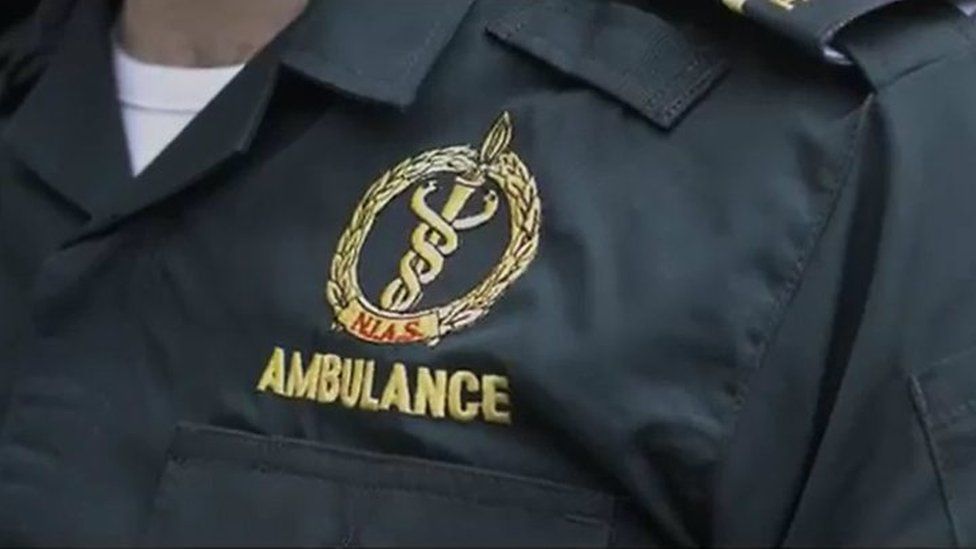
Among the assaults, ambulance staff were punched, kicked, bitten, spat at and threatened
Attacks on 11 ambulance staff on the night of 11 July and early hours of 12 July have been strongly condemned by the Northern Ireland Ambulance Service.
The assaults occurred at four locations – three of them bonfire sites – in a six-hour period from late on Tuesday into the early hours of Wednesday.
The most serious incident occurred at a bonfire in Carrickfergus, County Antrim, involving five NIAS staff.
One person was arrested in connection with another incident in Lisburn.
It happened in the Ballymacash area, with further staff assaulted in the Forthriver area of Belfast and in Belfast city centre, the NIAS said in a statement.
Image source, PAcemaker
Eleventh night bonfires present a high volume of calls for emergency services, NIAS said
During the Carrickfergus attack, staff were punched, kicked, bitten, spat at and had threats made on their lives.
A student paramedic was among those assaulted in the incident.
Michael Bloomfield, the NIAS chief executive, said: “We would normally have in the region of 11 or 12 staff assaulted per week, which is of course in itself appalling – there were 652 assaults on staff last year.
“But for there to be so many in such a small space of time is obviously of great concern.
“It’s not for me to speculate on what causes people to behave in that way – it is a small minority – but when they do, the impact on staff and on our service is very significant.”
He told the BBC’s Good Morning Ulster programme that the staff affected had been given the opportunity to stand down.
“But it says a lot about them that most of them were able to carry on and were determined to carry on for the rest of their shift because there were people that night, as there are every night and every day, who need our assistance,” he said.
Michael Bloomfield said many of those assaulted were determined to continue working
Mr Bloomfield said that for a student to have been one of those assaulted it was very concerning “and I’m sure that that causes them to worry about the career that they’re embarking on”.
He called on the support of community leaders to “stress the unacceptability of such assaults”.
“We will support our staff over the next days and weeks, being aware that the physical injuries will be quickest to heal,” Mr Bloomfield said.
“The mental distress will likely remain with them for some time to come.”
BBC News NI has contacted the Police Service of Northern Ireland for further details.








